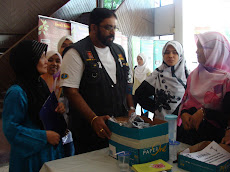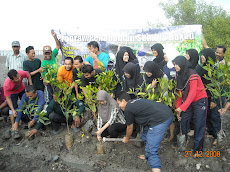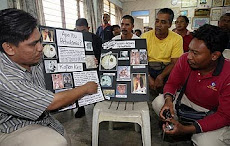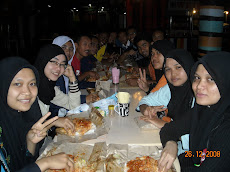Posted by Aktivis Alam Sekitar Kampus;
| Posted in
Artikel
| Posted on 09 October 2008

The recent food crisis has leaded the world community into an uncertainty and panic situation. Nonetheless the crisis has been perpetuated long time ago under neoliberalism economic system which gave birth to certain policies like ‘Structural Adjustment Program (SAP) that famously promoted by World Bank and IMF. Under SAP the indebted countries (mostly Third World countries) that took financial loan from these international financial institutions, were told to plant a cash crop that need to be exported rather than planting their own staple crops for domestic consumption.Thus it leads to a humanitarian crisis of food shortage in most of the countries that has adjusted their policy under SAP.
Furthermore neoliberalism economic system allow such basic commodity like food to be used for speculation and bargaining which leads to a turbulence change of prices. International nonprofit group GRAIN has just published a report called ‘Making a killing from hunger’ which states: "The amount of speculative money in commodities futures was less than $5 billion in 2000. Last year, it ballooned to roughly $175 billion."
As what matter the most under neoliberalism is profit. The role of food crops like corn and soy were also being transformed from merely about feeding the people and now to feed the vehicles in the name of biofuel.
Under this neoliberalism banner also, the myth ‘Genetically Modified crops is a solution for world hunger’ exists and being heavily promoted by agribusiness corporations from the developed countries.
I feel greatly worried with a comment from Datuk Dr Abd Shukor Abd Rahman, director-general of the Mardi (NST on 4th May 2008) that GM crops is part of the solution in this food crisis.
To refute this idea I would like to quote an argument from Claire Hope Cummings who is an environmental journalist and a former environmental lawyer for 20 years in United States. In her new book Uncertain Peril: Genetic Engineering and the Future of Seeds, she outlined five solid reasons that genetic engineering is not right for agriculture.
One: It's bad science. It was developed on the basis offlawed assumptions which have since been discredited by thescientific community.
Two: It's bad biology. It was deployed without regard for its potentialfor genetic contamination and its risks to human health.
Three: It's bad social policy. It puts control over seeds and thefundamentals of our food and farms into the hands of a fewcorporations who have their own, not our, best interests in mind.
Four: It's bad economics. After billions of dollars and thirty years,only a few products have been commercialized, and they offernothing new. No one asked for genetically modified organisms(GMOs), and given a choice, consumers would reject them.
Five: It's bad farming. GMOs don't address the real issues plaguingagriculture; they're designed to substitute for or increase the use ofproprietary weed and pest control chemicals. Patented and geneticallyaltered seeds perpetuate the very worst problems of the industrialfood system, and they are undermining the autonomy of the farmerswho use them.
With these kind of perspectives, I hope Mardi would not jump quickly into the bandwagon of including GM crops as part of the solution before referring and discussing extensively with non-governmental organizations (NGOs) and reputable scientific communities on the impact of GM crops to our society.
Wan Ahmad Fayhsal,
3rd Year Chemical Engineering student,
Universiti Teknologi Petronas.














.jpg)





















Comments (0)